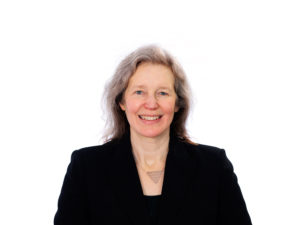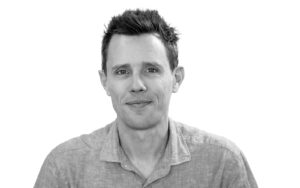Six years on: Helen Cusins interview

Helen Cusins was working for Brunel before we technically existed. Ahead of her departure after six-and-a-half years with us, we asked her to provide a few snapshots, and take stock…

“Working at Brunel has meant learning about a whole new world. It’s been a unique experience that has allowed me to be part of something from the very beginning, and to get a window on several different areas – business set-up and management, regulation, Responsible Investment, and more besides.”
Before Brunel, Helen had worked as a project manager, just not in investment management. In 2016, she joined the Environment Agency to work on the new pooling project. It meant absorbing a constant influx of new information as she coordinated the submission to the government and then worked to develop the Full Business Case. The Executive Summary alone was 30 pages long.
There were more leftfield duties to fulfil, too.
Setting up
“In the early days of the company, it really could be anything,” says Helen. “I remember putting up the clocks in the office. We were a small core project team led by Dawn Turner, the project executive and then the company CEO. Before the office was opened, the project team was based in the of the offices of PwC, the offices of Osborne Clarke, and occasionally in Starbucks. We even conducted an interview in Starbucks. The set-up process was incredibly fast-paced with so many strands running in parallel, but we were supported by the wider client group, advisors and business partners. This is the company we all built.”
Brunel submitted a proposal for the ten authorities – today our ten clients and shareholders – in February 2016, and a more extensive version in July. Brunel was incorporated in October 2016, although we date our formal launch to July 2017, which is when the leadership team were appointed as directors. Was there a big fear at this point that the project – with all that needed to be achieved in terms of client buy-in, FCA approval, fund generation and so on – might fail?
“There was no option of it not working and the timescales were recognised as extremely ambitious,” says Helen. “We knew we needed to benefit all stakeholders in the fairest possible way, but the reality was that we were dealing with a huge number of stakeholders across the client funds. We had members of both Client Officer Group (now succeeded by Client Group) and the Shadow Oversight Board (now BOB) to liaise with, and then FLAG, the Financial and Legal Assurance Group with its monitoring officers and 151 officers. Add in the project team and it was a big crowd to take forward together.”
Partnership-powered
As a result, there had to be a laser focus on collaboration and on culture. Without partnership, progress would have become impossible because, although there was a model for how the different stages should be reached, pooling meant breaking new ground. The concept and the regulations around it were very new in the UK, and it had to work for ten different clients each trying to look after the interests of their own members.
“Timescales were tight, too – the company was set up in a year, with FCA authorisation following soon after,” says Helen. “And then we started to transition assets.”
Today transition is more than 80% of the way there and Brunel has 17 listed markets portfolios, two cycles (soon to be three) of private markets portfolios across five different asset classes, and a local impact portfolio. The change has been both hi-octane and transformative.
“When we began, we felt like a small project team but when we moved to an office it already gave us a huge sense of achievement as plans and spreadsheets were suddenly turned into something tangible. Today we have specialist teams, we have BAU processes, we have processes that have to engage far more people to reach their endpoint. I would say that, since 2019, we haven’t felt like a small business anymore.”
Helen’s own Brunel career shifted in January 2018, as the project work wound up, and she moved on to work in Risk & Compliance under Laura Chappell, who was then Chief Compliance & Risk Officer. Laura’s elevation since then (to CEO) reflects the business’s broader evolution. Then the pandemic brought still further change.
Plus ça change…
But if Brunel is in many ways a different business today, are there obvious continuities too?
“Those values we had right at the start have persisted. They were reflected in the strategic objectives built into the business at inception. Those initial values were a commitment to transparency, to Responsible investment, and to collaboration, we captured these priorities in our investment principles. They are still there today, and new joiners are still buying into them. There is a lot of passion for what we do at Brunel and there are a lot of people wanting to make a difference and looking for the best way to do so. These things haven’t changed,” says Helen.
One of those values, as mentioned, is Responsible Investment (RI). Helen says this was an area that could have been a sticking point for the partnership and hampered progress, simply because there were recognised differences of opinion. Setting out clear principles at the start would prove crucial to enabling coordinated progress on RI, despite those differences.
“Our ambition was to meet the regulations and make savings, of course, but also to make meaningful progress on RI. as Faith Ward gave the partnership have access to the latest thinking on RI,” says Helen. “And then there was the buying power of course – that gave us greater clout to realise all our aims.”
Six years ago, planning for the long-term future of the business felt difficult and involved an element of crystal ball gazing but, even then, there was a strong recognition that the new pool should be able to make hugely improved savings through performance and portfolio consolidation.
“And we have over-delivered on those formal 2016 estimates.”
Looking ahead
So what, then, should Brunel be expecting five years hence?
“At the start, we’d thought it’d be a frenetic first two or three years but then shift into BAU,” says Helen. “Actually, our thinking on how best to meet our clients’ needs would still evolve, as with the development of our private markets offering, which is much more significant than envisaged in the original business case. And I think there is the same desire today to grow and try new things – as Brunel responds to our clients and the changing world, innovation is bound to mark the next few years, just as it has marked the last few.”
Helen’s multifarious contributions to Brunel’s rise across more than six years mean she’s now ready to take a break, and to think about doing something new. We asked her what she looked back on with most pride from her time at Brunel.
“How well everyone worked together is the main thing that has impressed me at Brunel. We have collaborated with many different stakeholders, we’ve overcome all kinds of obstacles, and now we’ve launched all these portfolios and taken transition to within sight of the finish line. When you look back, it’s an amazing achievement.”
